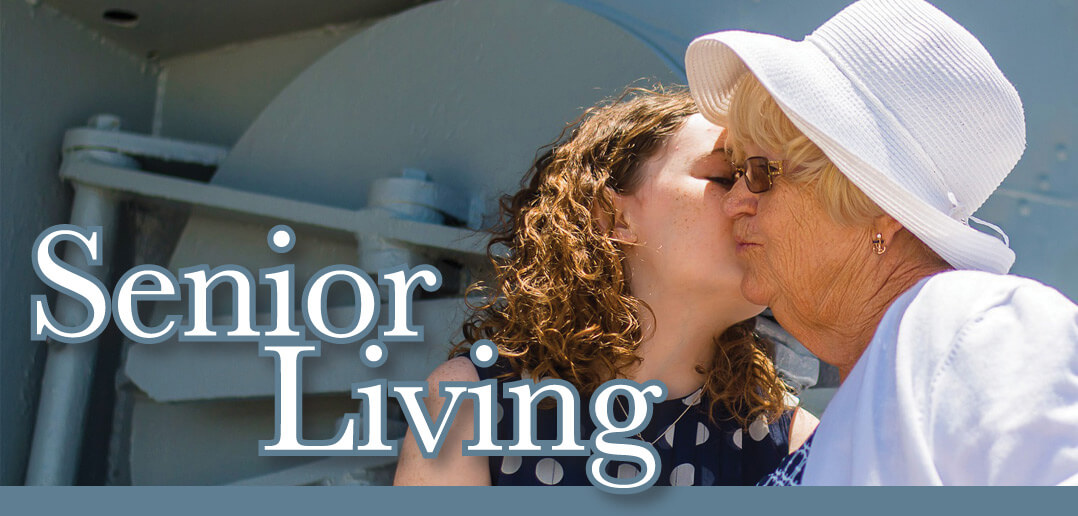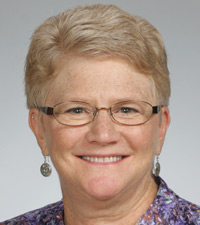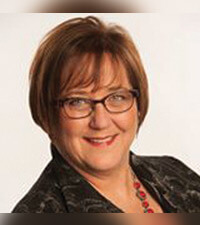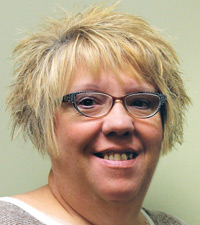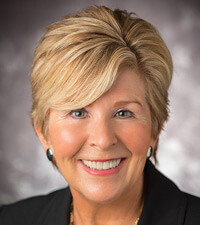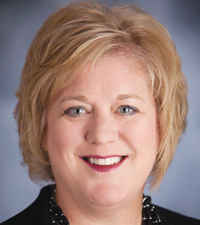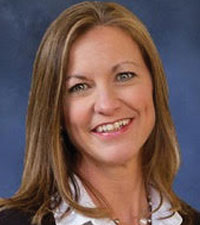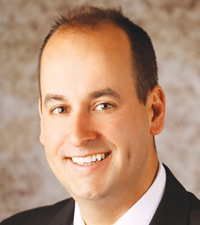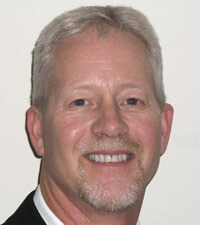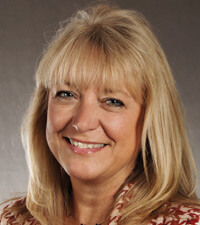Senior Living in Lincoln
As the senior population in our community grows, we are proud to report that the resource-rich Lincoln area has stayed on pace with meeting their needs. Not only that, but in an effort to best anticipate the needs of the future, there is always work being done to improve current services and to fill in any gaps as they are identified.
Across the spectrum of senior care, there will always be new problems to address and solutions to be applied as things change with time. However, much remains the same every year at this time with respect to preparations for the winter months or planning how you’ll spend the holidays, and it’s also one of the more ideal times to adjust to any changes that need to be made, such as a move or integrating a higher level of care, if deemed necessary. As such, we’ve taken the opportunity again to catch up with our local experts, who have graciously provided helpful information for our readers about a host of timely topics related to senior living.
With the baby boomers now entering their senior years, it makes sense that as such a large population transitions, there will be plenty going on in an effort to accommodate that influx. As this is ongoing, many professionals in our community are contributing their efforts to ensure that all seniors are receiving what they need to remain healthy and happy despite the various challenges that are currently present.
“This is the first time in history that our society has seen such long lifespans for such a large number of people,” says Laurie McAdams, Family Service Representative at Butherus, Maser & Love. “It can create great challenges as some of these seniors deal with poverty, a disability or isolation. Also, the reality now is that many adult children are trying to care for their aging parents while also raising children and sometimes even grandchildren.
One of the greatest challenges for many seniors is when they lose their ability to drive. It can result in putting off a doctor’s appointment, avoiding doing grocery shopping and face isolation.
Our elders who live in poverty face serious difficulties. During the winter months it can be particularly difficult for seniors who remain in their homes. Their feeling of isolation increases and good nutrition can be an issue.
Tabitha provides Meals on Wheels for homebound seniors and there are many clubs, churches and senior centers, which provide gatherings, meals and transportation to events during the winter months. A magazine, Living Well, is published out of the Aging Partners organization and it has all of the activities that are provided by that agency.
Other things such as falls and automobile accidents are a major concern. Preventing injuries, illnesses, and crises in the life of older adults is important to maintaining their quality of life. Making sure that the home is un-cluttered so that falls are avoided and good nutrition practices are followed is critical. Moreover, attending doctor appointments and monitoring prescription usage and their overall well-being is essential.
As an adult child, a neighbor of a senior or someone who has regular contact with them, a phone call, delivery of a homemade meals or offering a ride to church, a special activity or going out for meal can make a world of difference. There is an old saying in the volunteer world which is, ‘To the world you may be one person, but to one person you may be the world.’
Another major challenge that’s present is the high cost of medication for serious health issues. As more prescriptions are ordered, many seniors must decide between their medications and paying their bills. And when there are grave health conditions, seniors (and their families and caregivers) can struggle with nearly unmanageable costs. Some seniors are often too proud to ask for help.
While in the past, seniors were respected and even revered, unfortunately now they are often ignored and even looked down upon. Valuing seniors as assets to the community rather than burdens on it will provide opportunities for them to help in the lives of others. As seniors are valued more, they will be able to make an impact on the lives of other seniors and younger generations.
Along the same lines, having a conversation with seniors regarding their wishes are is key. More than likely they have spent a lot of time thinking about where and how they choose to live. Although we face many challenges, Lincoln provides many options to help keep seniors in the place they call home. There are resources available at the city and state levels along with other social programs. Also, coordination between service providers can make a tremendous difference in what resources are available for seniors. It greatly helps in reducing crises along with reducing costs associated with their care.”
Michaela Williams, President of Care Consultants for the Aging, addresses in detail the challenges that caregivers of seniors face:
“Navigating our long-term care system can be overwhelming and problematic for people taking care of seniors in our society. It can be somewhat difficult to research available options when making decisions for a loved one, especially during a crisis situation. If you are a caregiver for someone, it is helpful to know what government programs are available in order to determine what financial resources and options your loved one has and to work on getting legal affairs in order.
Throughout ones care journey, the reality of needing more than one service to care for your loved one is high. Those who know what senior services are offered tend to make better choices when they need to change or add to their care plan. Care Consultants produces the ElderCare Resource Handbook. The Handbook offers a complete listing of senior services in the Omaha and Lincoln metro areas. It is available in print and can be viewed for free online at www.careconsultants.com.”
She also expands on several other key issues impacting seniors, their loved ones, and even caregivers, who may also fall into the second category.
“Winter is approaching and tends to lead to higher levels of isolation. Caregivers can be utilized to help keep seniors active and safe. They can come over and visit with a senior who may not receive a lot of visitors. Or they can take the individual out on a walk, to get a bite to eat or to participate in activities. Sometimes those simple encounters that we take for granted can make a huge difference in a senior’s life. Senior centers and other organizations around town offer bingo, card games and clubs for seniors to socialize with people with similar interests.
When assessing a senior’s living environment, it is important to consider safety, nutrition and socialization. Not only is it necessary to make sure they are physically safe, it is important to make sure they have access to proper food as well as opportunities to socialize and keep mentally stimulated. If you have concerns about your loved one’s safety, it is wise to seek help. Home care can always be a good first step when you are looking for care. Sometimes having companionship, someone to prepare meals or assistance with personal cares can be just what is needed to help the senior keep their independence. Care Consultants can find caregivers to work with seniors from one to twenty-four hours a day. It can be flexible and adapt to your changing needs.”
Kris Beckenbach, Director of Guardian Angels, adds, “The risks we all face in winter months are significantly more dangerous for seniors. Slips or falls on slick surfaces can have devastating consequences for an elder. Rehabilitation from injuries requires more time than with a younger person. We encourage clients to consider tasks that can be handled by a caregiver, such as grocery shopping. Putting a delivery service in place from a local grocer or pharmacy is also a good way to avoid being out in winter weather.
Should there be a change in living environment to be undertaken it’s good to control as many variables as possible. Retaining known caregivers for a time is reassuring to a senior undergoing a significant change.”
“The decision for a person to move out of their home into another setting will never be an easy one, but it can be made less difficult,” further emphasizes Deb Maguire, LPN, CDP, CADDCT of HoriSun Hospice. “As with many things in life, things usually go much smoother when you plan and do your research. Plan, plan, plan—it can’t be said enough. It’s important to understand that people have different needs and that certain living options are dependent upon individual needs. Living options are not ‘one size fits all.’ Take a good look at your loved one’s care requirements so that you will have a clearer idea of which levels of care would be the best fit for them. It’s important to tour several communities before you pick one to place your loved one. You need to make sure the community can meet your loved ones level of care now and at the time that their level of care changes to avoid your loved one having to move right away. It is very stressful to make a change as we age and multiple moves are very difficult not to mention costly. The key to a smooth transition from home to a community is going to be to assure that the proper level of care has been chosen and as your loved one ages and their needs change the community can meet those changes as they occur.
As far as concerns on the horizon with the impending change in weather, while many people wish for a ‘White Christmas,’ the reality is that snow and ice can be a painful one-two punch, especially for seniors who have arthritis or difficulty walking due to a previous stroke or other illness. A single fall can cause debilitating and costly injuries. A few simple tips can help get through the winter months like staying indoors if it’s snowy and icy, keeping walks and driveways clean, and remember to socialize as depression is higher in the winter months due to social isolation. It is important to make efforts to spend time with family, friends and neighbors, and when weather makes visiting difficult, pick up the phone for a chat. It is important to know the likes and dislikes of your loved one to help them remain active in the fall and winter. They can play cards, watch movies and do crafts. Another fun activity is ‘armchair traveling’. If your loved one has always wanted to go to Hawaii then rent a movie about Hawaii, turn up the heat in the house a little, play Hawaiian music and make some popular Hawaiian food!”
Specifically regarding hospice care and related services, which are at the end of the senior care journey, Maguire advises about the importance of knowing when to ask for hospice services. “It is estimated that only 1 in 4 Americans who die each year receive comfort care at the end of life. Hospice is more readily available and affordable than most people think. In fact, most Americans do not know about hospice services or that they are eligible for fully paid-for care by Medicare and some other insurers. As health care providers we need to be aware and notice the signs, ask the difficult questions, and then have those conversations sooner rather than later. These conversations initially need to start at home between family members so that everyone knows the person’s wishes. But even more important is the hospital staff, nurses, and social workers having those conversations with patients as well. The national average of length of stay for a hospice patient is less than 7 days and we need to change the perception that hospice is all about dying when in fact it is actually about continuing to live life on your terms so you can enjoy the time you have left.
Our goal at HoriSun Hospice is to expand patient and family access to hospice and palliative care across all settings. This includes the exploration/creation of a model of care which allows patients and families to benefit from the coordination of supportive services offered by the Interdisciplinary Team earlier in the patient’s disease trajectory as well as efforts supporting earlier and routine opportunities for advance care planning. We ensure quality of care and access to services throughout the hospice community by: 1) Breaking down barriers health care professionals experience working in hospice through aligning their responsibilities with those they have in other health care sectors; 2) Supporting patient preferences for attending physicians; and 3) Working toward greater hospice and palliative care training across education curriculums. Seniors can utilize their primary care physician as a resource or call a local hospice agency and ask questions. Here at HoriSun Hospice we are as much about education as we are the care.”
Along the same lines of understanding the different types of resources that are available to seniors, Roxann Rogers-Meyer of Immanuel Communities also points out, “The choices for senior housing are often misunderstood. Many people believe their only option is a nursing home. Our goal at Immanuel Communities is to educate the public on the types of senior housing and to guide and advise families on making an informed decision.
Seniors and their families could benefit from doing their homework and researching options before a health crisis forces them to make a decision. Immanuel’s website, Immanuel.com, features a questionnaire that can guide families on the appropriate care level.
In the past few years, we have experienced more families visiting our communities at a time when their loved one can no longer live safely at home. In many cases, the senior has waited too long and independent living is no longer a choice. Assisted living is the appropriate level of care and that can be difficult for the senior and their loved ones to comprehend.
Immanuel Communities hosts the University Series. This educational forum gives seniors the opportunity to explore the community and to better understand independent living. Research shows that seniors who move into independent living when they are healthy live an average of seven years longer.”
She also touches on another important aspect of senior living, the opportunity (or lack-thereof) for social interaction. “Social isolation can impact the health, well-being and quality of life for seniors. It is important for seniors to stay active – physically, cognitively and socially. Immanuel Communities has a wellness philosophy that addresses the Body, Mind and Spirit. Our residents participate in Wii tennis tournaments, bocce ball tournaments, competitive bridge and The Landing at Williamsburg Village produces an annual Melodrama featuring the residents and staff. Immanuel AgeWell Centers focus on physical health by tailoring individual plans to improve well-being. Spiritual health is addressed through Bible study, worship services and the exploration of all faiths. Staying connected is the key to avoiding social isolation.”
As you can already see, a common theme with all matters related to aging is that there are so many different types of resources to consider. “The Lincoln community is resource rich!” emphasizes Amy Fish, Executive Director of Lancaster Rehabilitation Center. “Use these many experts to your advantage. Call upon trusted physicians, outreach programs, and the many health care facilities to help guide your decision making.
Most importantly, don’t be afraid to ask plenty of questions in order to ensure you have all the facts. Some health care providers have limitations on Medicare, Medicaid, VA, or insurance policy participation. You always want to ensure you’re taking full advantage of the benefits or programs you qualify for. And remember to take it one step at a time. Let others help in whatever way they can. Focus on the most critical decisions first, knowing that there is plenty of help available.
The overall health care continuum is becoming more and more transparent, with continual improvement in the level of communication between healthcare providers. This is a benefit to seniors and their families, as we all work together to provide the most appropriate care at the most appropriate time and place. The available options for health care services also continue to expand for both long and short term needs. Seniors deserve to take full advantage of the benefits or programs for which they may qualify.
Lancaster Rehabilitation Center is the largest skilled nursing facility in the state of Nebraska. This allows for us to provide for all skilled healthcare services under one roof including: traditional long-term care, short term rehabilitation, along with memory and behavioral support.
The team at Lancaster Rehabilitation Center can serve as a resource for any long-term, memory support, or short stay rehabilitation needs. We also have a certified SHIIP counselor on staff for help with any Medicare questions. Community members are welcome to contact us anytime with questions. We’re here to help!”
As far as things to take into consideration when assessing if a senior’s current living environment is meeting their needs, Fish adds, “When trying to balance the want for independence with the need for extra assistance, it’s most important to keep as the primary focus the provision of the most appropriate care for that particular moment in time. Evaluate what additional services will help maintain their utmost freedom and independence while providing them the safety and security desired. Easy things like arranging for Meals on Wheels or chore services might be the minimal answer. Don’t feel like you need to make a major jump to 24-hour care if that’s not what is vital or necessary as a first step. It will often be better received if services are gradually introduced, especially to those seniors who are very independent.
When a decision is made on the services needed, and the elder is in agreement with this help, make sure your expectations are clearly communicated to the provider selected to deliver this service. Often, a breakdown in communication leads to frustration on everyone’s part. Hold the provider accountable to your expectations, and solicit feedback often from the elder receiving the services to ensure their comfort with the change.
As my other colleagues have mentioned, getting out and about in the winter months can be treacherous for anyone, let alone for those who have physical limitations or safety concerns. Therefore, before deciding to make that trip to the store, or medical appointment, senior’s need to be sure the route will be free of obstacles like snow banks or icy sidewalks. Volunteering to clean the drive or sidewalk for a senior is a kind gesture and may allow them to make even simple trips to the mailbox worry free. Another kind gesture would be offering to assist them with their travel needs, or just stopping by to pass the time. The cold and dangers of winter can isolate seniors, making simple tasks more difficult. It is important to lean on the many resources our community offers to seniors every day, including things like meals on wheels, and home health care services. At Lancaster Rehabilitation we also offer short term respite stays, where seniors can take up temporary residence, until spring arrives. That way, they get all the comforts of home, plus an actively engaged activity program, and delicious home cooked meals!”
“If considering a new senior living option, it is often a good idea to make that transition in the late summer and early fall prior to the cold and snowy days of winter,” adds Beth Friesen of Oasis Senior Advisors. She agrees, “Many seniors who reside in their homes become socially isolated during the winter months leaving them prone to depression and loneliness.”
Friesen also offers a few ways that you can make a difference in how a senior loved one fares through the winter months. “Check on the seniors in your life. Offer to take them a meal to share with them, play cards or if the weather permits, take them for an outing. Make sure their heating units are operating efficiently and safely and check to be sure they have adequate food and are able to safely prepare it during long cold spells during the winter months.”
When it comes to planning for the future, she further advises, “People don’t like to have difficult conversations, especially those that entail a decline in health or end of life issues. We need to remove the stigma of these conversations within our families and within our community. Growing older certainly has its challenges, but it is a privilege denied to many. It’s going to be difficult, but even more difficult is a sudden change in status for which no one is prepared. Over the next couple of decades it could become difficult to find openings at assisted living and memory support communities because the demand has the potential to be very high as the baby boomers advance in age. It’s important to visit with a senior living advisor and determine which communities you prefer and then get onto a waiting list before the need becomes critical.
Furthermore, you can’t search the internet for something you aren’t aware exists. Senior living advisors, such as Oasis Senior Advisors are a prime example. Many health care providers as well as industry experts and families have no idea that this resource is there to help people when it becomes time to consider senior housing. Having a simple discussion and allowing me to get to know you and your loved ones can save countless hours and much stress down the road. It allows you to focus on your loved one and their needs at the time of transition instead of visiting countless senior living communities that may or may not be able to address your loved one’s needs.”
As we age, any number of issues can arise that affect our health and quality of life. Two of the most common are hearing loss, difficulty with mobility, and incontinence issues.
In fact, with respect to the first, recent studies from Johns Hopkins show that hearing loss can lead to dementia or Alzheimer’s. This, among other equally impactful reasons, is exactly why monitoring your hearing is so important.
“At Nebraska Hearing Center, we firmly believe in education,” states Leslie Frank, MS, CCC-A, Audiologist and owner of Nebraska Hearing Center. “This is why we offer complimentary hearing evaluations. We encourage people to treat their hearing as any other annual exam so they can compare results from year to year. If it is free, why not get the hearing evaluation done?”
When considering a senior living environment, it’s a good idea to evaluate the services available at each and on past that, which combination will best meet your needs. A Hearing Aid Technician from Nebraska Hearing Center visits five senior living communities in Lincoln on a monthly basis at no charge. It can be difficult to get out, so they’ll bring the service to you.
Furthermore, socialization is so important at any age. Seniors really look forward to holiday gatherings and visiting with family. If you or a loved one is experiencing hearing loss – why wait to take action? Why miss the conversations of another holiday season? “This is just one of the many reasons why we offer the free hearing evaluation,” states Leslie. “We want you to hear the grandkids and enjoy an enhanced quality of life.”
Common signs to look for regarding hearing loss are:
- Overuse of the word “What?”
- The TV volume is too loud for others.
- Ringing in the ears.
- Your loved one appears to be able to hear loud noises, but doesn’t seem to follow conversations.
- Your loved one has trouble understanding a conversation in a noisy environment, like a restaurant.
Finally, when looking for a hearing professional, be sure to work with an Audiologist. Find someone that you are comfortable with because adjusting to hearing aids is an ongoing process.
Next, mobility and incontinence issues are also major factors that will impact a number of seniors as they age.
“As individuals get older, it is not uncommon to experience changes to our body,” notes Joe Frey, owner of Triumph Home Health Supplies. “Sometimes these changes may include aches and pains, changes in sleeping patterns or incontinence issues. Millions of seniors experience these issues. We assist many individuals with their incontinence concerns every day and have many products or options to address these concerns.
Individuals with incontinence concerns should begin by meeting with their doctor first to address the issues. After that, we can provide product samples. This is an excellent opportunity to find the best product for you. We can provide many different types of products, from insert pads for minor incontinence concerns to pull-ups and nighttime protective wear, all the way to a tape-style brief for heavy incontinence. We realize changes occur and the product matching your needs today may not tomorrow. Therefore, we encourage an open conversation with a professional team to determine what product fits your lifestyle now.
Also, as already touched upon, driving in snow and other conditions can be a challenge. Our delivery trucks run every week of the year locally. For clients across Nebraska, we offer a shipping program in discrete boxes, allowing them the same access to our products.”
When it comes time to approach any important decision regarding a senior loved one, many are apprehensive, conflicted, and unsure of the necessary steps to take moving forward.
“It can be very difficult emotionally for families to make decisions for their senior loved ones,” says Larry Gadeken of Legacy Retirement Communities. “It’s easy to think that one good moment is the norm. However, in the 2-3 hours on average that a person may be able to spend with their senior loved one due to busy schedules and everything else going on in life, it’s only just a small glimpse into how things are going and may not be an accurate representation of what happens throughout the entire week.
Being in denial and waiting too long to look into care for their loved one is all too common. In hindsight, most admit they should have done things sooner.
So, instead of assuming that everything is going well until it’s painfully clear that it isn’t anymore, be proactive and take the time to see what his or her daily life looks like. What do you see? What do you hear? Did your loved one tell you that they need to go to certain appointments and then forget about them?
Safety is always the number one priority. As an adult child, do you see things out of place? Are they keeping the same routines as they used to? What’s their interaction with their friends like? Do they avoid social situations because it’s uncomfortable, perhaps because they can’t hear well or don’t remember certain things? Did they stop playing with their card group?
During the winter it’s dark early, which can cause depression at any age. Watch for signs of what’s called “Sundowners”, or loved ones who like to wander. It can be very typical to get lost, resulting in wandering in frigid cold temperatures. With memory issues, your loved one may also run the risk of locking themselves out of the car or house.
Along with safety and socialization, make sure that they’re taking their medication as directed and going to doctor appointments.”
He continues, “It’s important to remember this: Don’t feel guilty. You’ll feel far less guilty if you avoid the problems that are compounded by waiting to act. You’re not taking away something, but rather, you’re giving them a better quality of life. It’s comfortable. It makes sense for them. They’re not likely to feel like they’re ‘different’ in an environment where they are surrounded by others who are at similar points in their lives and share common ground. There’s nothing wrong with being different as we age. It’s okay. To be in an atmosphere that’s safe, engaging, loving and inviting is a gift to your loved one. They may not be receiving that at home anymore. Particularly in a memory care facility, the staff is trained to meet them where they’re at, moment to moment. There are no expectations of them to “function up”—the staff accepts them just the way they are. Residents at the Legacy Arbors share the same experiences, so they have a lot of conversations. They may be over and over again, but they share the same memories. That socialization is critical for any senior as it keeps them engaged and active.
Above all, consult people who know what they’re doing. With every parent or older adult, it’s different. At Legacy Retirement Communities, we get to know the families so that they are always part of the conversation, even if they can’t be there.”
Approaching any major life decision is not to be done without careful consideration, that’s for sure. Rhonda Saunders of Hospice Community Care of Nebraska also provides the following insight on navigating the journey that comes as a result of aging:
“As quoted from Margaret Mitchell’s classic novel, Gone with the Wind (1936)—‘Death, taxes and childbirth! There’s never any convenient time for any of them.’
For seniors, hopefully their time for thinking about childbirth is long in the past, like the Civil War. However, taxes and death are still before us. As painful as all three are, they are a part of life. The Bible says, ‘For everything there is a season’; life too has its seasons, like tax season. We prepare for our taxes, young mothers prepare for their child’s birth, but how many of us prepare for our deaths? We all know it’s unavoidable and we do all sorts of things to delay it, but the fact is we don’t want to think or talk about it because it’s unpleasant! So we don’t.
Freedom, rights, choices–we all want them and should have them. But how often do we think of them in terms of dying? Do I really have choices at the end of life; do I really have the right to choose and the freedom to do so? One day I asked myself, ‘Self, why don’t we take the time to think about the choices we have surrounding dying, before I’m dying?’ Thirty years of educating expectant mothers that they have choices in childbirth, choices in their care for themselves and unborn child made me ponder this question even more. The childbirth organization I was certified to teach through, International Childbirth Education Association, has a motto: ‘Freedom of choice, based on the knowledge of alternatives.’ Then it struck me, well not literally… “Why haven’t I looked at approaching end of life issues as I’ve taught hundreds of women to approach birth?’
Being in a position in which I provide education on end of life, I’d started thinking about what all this really means. Specifically, what are the choices and alternatives and how does a person make sure that they’re followed through at the end of their life?
For example:
- Do I want or have a DNR? Do I really know what this means and how it impacts my body?
- What is tube feeding and what are the advantages and disadvantages of this? Do I still get to eat?
- What types of medications can be used to keep me comfortable at the end of life and how might they impact me?
- What are the things that are most important to me at the end of life?
- Can I stay in my home? What if I need more care, what are my options? What might my surroundings include to make me feel physically and emotionally comfortable? Flowers, a favorite pillow, blanket, pictures, windows, lighting, sound, smells, etc.?
- How involved do I want my family and friends? And what does that look like?
- And most importantly, who will make sure my wishes are followed?
The time to think about these things is now! The time to tell your family, friends, physician… is now! Talk, really talk, about choices, options and YOUR preferences surrounding YOUR end of life NOW. Then, until that time comes, you can live your life in mental and emotional peace knowing you’ve made decisions based on the knowledge of your alternatives. Until then you only have to look forward to paying your taxes!
If you’d like to schedule a time to visit and find out more information, feel free to contact me directly at (402) 405-1797 or via email at rsaunders@hospicenebraska.com.”
With so much for seniors and their loved ones to consider, it truly does help to simply have someone to talk to about anything, big or small. As with most other things in life, it’s all about using the available resources to your advantage. There are certainly plenty within our community, and there’s no time like to the present to begin familiarizing yourself with what’s out there. Planning for the future encompasses what might happen tomorrow or next month as well as years down the line, and often our decisions now impact those that we will face later on, so with that in mind it’s never too early to ask the important questions and search for what the right answers are for you and your family as you continue down your path in life.

